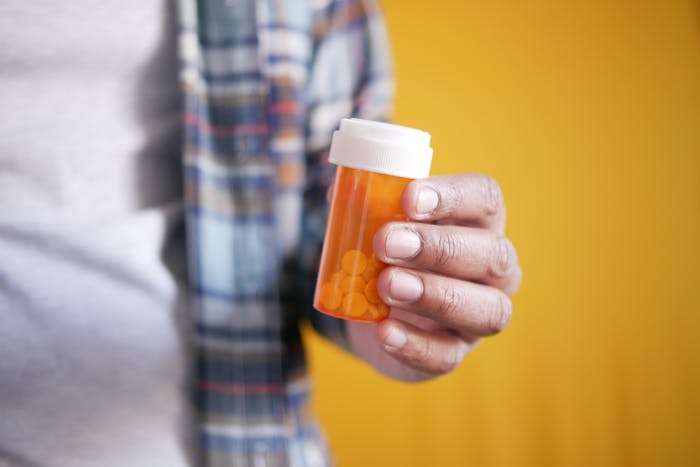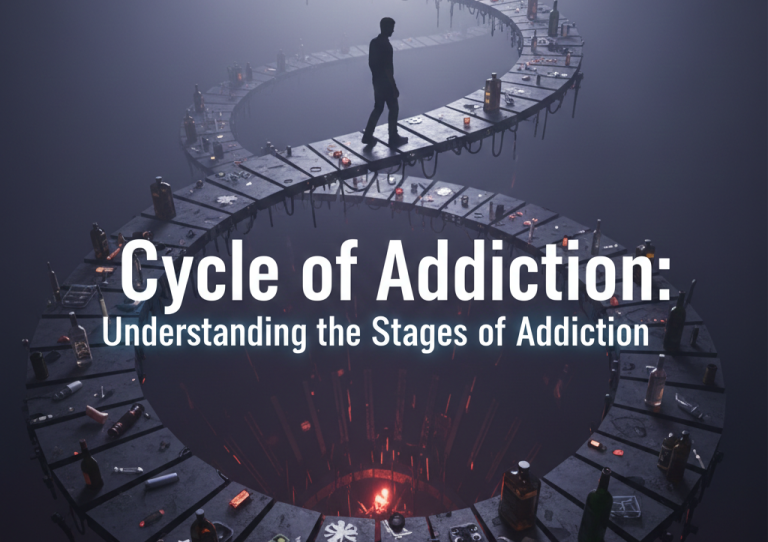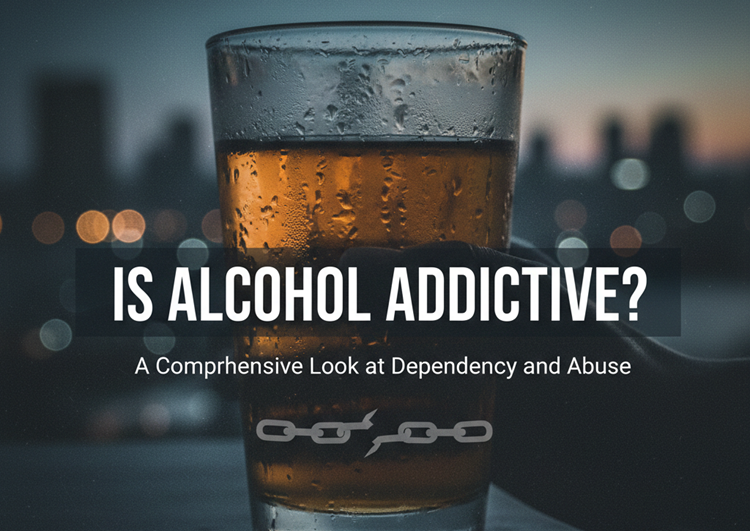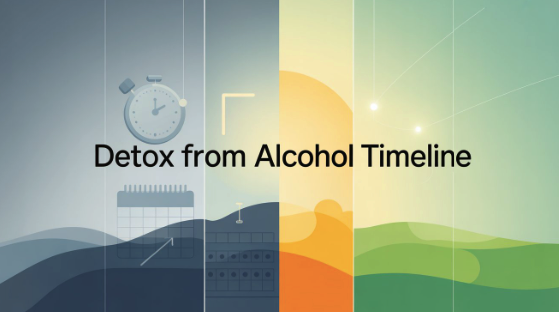Dealing with drug abuse has been one of the biggest health concerns over the last few years. Because so many people worldwide face the problem, it’s essential to learn how to recognize the warning signs. Understanding these signs is helpful for loved ones’ sake and also a key step to help yourself get better.
We’ll explain here the main signs of drug abuse, physical, mental, and behavioral the drugs commonly used and how someone can support a friend who is affected by addiction. You will be able to identify the warning signs in time to act before it becomes a big problem.
What is Drug Abuse?
Drug abuse refers to taking drugs to feel a rush or to alter one’s mind in some manner. Examples are prescription medicines, drugs you can buy at stores, alcohol and illegal drugs such as cocaine, heroin or methamphetamine.
The main way to distinguish use from abuse involves the number of times one uses the drug, how big the dose is and how the drug affects daily living. Taking medicines to the extent that they affect your commitments, social life or well-being is called drug abuse.
Why Recognizing Drug Abuse Symptoms Matters
Recognizing the problem early helps avoid major problems such as addiction, overdose and death. In many cases, those with addiction try to cover their habits and don’t see the progression happening. This is why friends, family members and coworkers need to notice these signs.
Early detection of symptoms can lead to successful treatments, which might save lives.
General Symptoms of Drug Abuse
Depending on the drug, how often it is abused and the individual’s tolerance, users may have similar symptoms.
- Quick changes in mood
- Erratic behavior
- Neglecting responsibilities
- Large shifts in a person’s appearance or cleanliness
- Social withdrawal
Let’s look into these factors more closely.
1. Physical Symptoms of Drug Abuse
Physical changes are often the most visible and may include:
Weight Fluctuations
Many substances can change your appetite which leads to quick changes in weight.
Dilated or Constricted Pupils
When someone takes cocaine or ecstasy, their pupils become bigger, but when they take heroin, their pupils get smaller.
Changes in Sleep Patterns
Individuals may end up sleeping too little or too much due to the effects of the drug.
Bloodshot Eyes or Runny Nose
Those who use drugs often have bloodshot eyes and a constant drip from their nose when taking snorted substances like cocaine.
Unusual Body Odor or Breath
Some drugs, such as alcohol or marijuana, produce a distinct aroma.
2. Behavioral Symptoms of Drug Abuse
Drug abuse often leads to dramatic behavioral shifts:
Neglecting Responsibilities
Not going to school, not working or skipping important events is a strong warning sign.
Secrecy and Isolation
Addiction changes a person’s behavior, and they can start to isolate themselves, become secretive or make up stories about being elsewhere.
Financial Problems
You should watch for any spending, borrowing or taking money that can’t be explained.
Loss of Interest in Hobbies
Individuals may give up activities they enjoy once drugs come first in their lives.
Legal Trouble
Substance abuse can also lead to people getting caught in many legal troubles or acting irresponsibly.
3. Psychological and Emotional Symptoms
Substance use impacts mental and emotional health significantly:
Increased Anxiety or Paranoia
Stimulants often result in serious anxiety, panic or paranoia.
Depression or Mood Swings
Many times, users experience extreme highs and lows when they are going through withdrawal.
Hallucinations or Delusions
Taking certain drugs can cause people the sensation of ‘seeing or hearing things that aren’t real.
Irritability and Aggression
Mood instability and sudden outbursts are also common symptoms.
4. Signs of Specific Drug Abuse
Different substances come with distinct signs. Here are a few examples:
Alcohol
- Slurred speech
- Poor coordination
- Blackouts
- Aggressive behavior
- Strong odor on breath
Opioids (e.g., heroin, painkillers)
- A feeling of sleepiness
- Constricted pupils
- Itching
- The lines on the skin from injecting drugs
- Slow breathing
Stimulants (e.g., cocaine, meth)
- Hyperactivity
- Suppressed appetite
- Talkativeness
- Paranoia
- Dilated pupils
Marijuana
- Red eyes
- Increased appetite
- Lethargy
- Poor short-term memory
- Dry mouth
Hallucinogens (e.g., LSD, mushrooms)
- Hallucinations
- Confusion
- Shaking or tremors
- Panic attacks
- Recurring flashbacks
5. Long-Term Effects of Drug Abuse
Being active every day makes the body and mind gradually weaken. Effects that happen later in life include:
- Problems with the liver and kidneys
- Difficulties with the heart and blood vessels
- A decrease in thinking ability or damage to the brain
- Having an immune system that does not work properly
- Diseases of the mind
- An increased chance of getting infectious diseases such as HIV or Hepatitis C
Recognizing signs early may prevent permanent harm.
6. Signs of Drug Overdose
Someone who has overdosed should get help straight away. Some warning signs are:
- The loss of awareness
- A bluish or grayish color on the lips and nails
- Breathing that does not come at even intervals
- Throwing up or having difficulty breathing
If you suspect someone has taken too much of a drug, dial emergency services as soon as you can.
7. Drug Abuse in Teens vs. Adults
Recognizing age-specific signs can help you spot abuse sooner.
Teen Signs
- Falling grades
- Skipping school
- Sneaking out at night
- New, secretive friend groups
- Sudden change in fashion or music
Adult Signs
- When people do not come to work or lose their jobs
- Issues that occur in relationships or marriages
- Being separated from connections with peers
- Constantly moving from one job to another
The presenting symptoms differ with each family, but their main behaviors are much the same.

8. How to Approach Someone Showing Signs of Drug Abuse
Addressing drug use requires compassion. Keep these tips in mind:
- Keep your cool and do not blame your partner for everything
- Express your concern by using sentences such as “I’m concerned about you…”.
- Worry about them, rather than passing judgment.
- Pay close attention to what others are saying so that you don’t interrupt.
- Make it known that help or professional support is available if they need it
9. When to Seek Professional Help
If you notice multiple signs over time, it’s critical to intervene. Treatment options include:
- Detoxification
- There is a choice between inpatient and outpatient rehab.
- Types of behavioral therapies are CBT, DBT, and MI.
- Using medications such as Suboxone and buprenorphine with cognitive therapy helps with avoiding triggers.
- There are peer support groups, for example, AA, NA, and SMART Recovery
Early help is important for achieving better results.
10. Preventing Drug Abuse Before It Starts
Prevention begins at home and in the community. Effective strategies include:
- Being sincere and open when you communicate with children and teens
- Getting information about the risks of drugs at a young age
- A supportive and connected atmosphere in the family
- It should be simple for people to get mental health services whenever they need them.
- It is important to use and monitor the way you take any prescription medicines.
Collaboration among family, school, and the community can prevent problems due to substance abuse from starting.

Don’t Ignore the Warning Signs
Getting into drug abuse is a process, and so is the process of recovery. Recognizing the early signs in you or a loved one means you shouldn’t hesitate to find help. Just as in heart disease, prevention efforts are best when caught early. Being present or sharing your views can give someone that initial push toward recovery.
If you or someone you know is suffering from a health problem, Orlando Treatment Solutions welcomes you and is ready to help. Call us at (321) 415-3213 today, since any moment could be important.



























